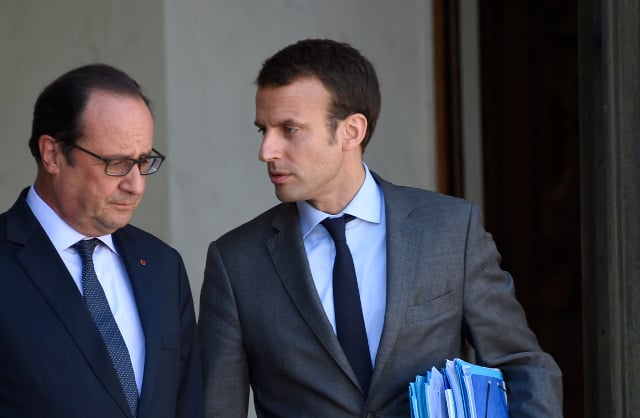If there is an air of inevitability to the news that ex-Prime Minister Manuel Valls has announced that he will be voting for Emmanuel Macron in the first round of the French presidential election, there are two sides to the story that need to be considered.
The first is what it means for the socialist party candidate Benoît Hamon, the second is what impact it could have on Macron.
It’s easy enough to read Valls’s defection as a case of sour grapes on the part of the candidate squarely beaten in January’s primary, where the losers are expected to support the winner. In fact one of those, the ecologist François de Rugy, reneged in February and backed Macron.
Valls had already declared, last week, that he could not support Hamon’s project, but left the question of his support open-ended.
The same issue has been troubling right-wingers within the party and a number of key figures, including the speaker of the National Assembly, Claude Bartolone, and defence minister Jean-Yves Le Drian have also voiced their support for Macron, not Hamon.
And the decision is not altogether without risks, since the party has stated that it will not endorse candidates for June’s general election who do not support Hamon.
The blame for Valls’s defection does not lie solely at his own door. On winning the nomination, Hamon surged past Jean-Luc Mélenchon, his left-wing rival in the polls, to take a 14% to 11% lead.

But since then, Hamon has struggled to establish a clear identity in the space between Mélenchon and Macron.
In the wake of a march of more than 100,000 in Paris (130,000 according to organisers) in support of his project for a Sixth Republic and in first live TV debate of the five leading candidates two days later, Mélenchon has flipped the scores around.
Valls’s defection is not, however, unmitigated good news for Macron. The other candidates are trying to stress is that, for all his ‘newness’, the 39 year-old former economy minister merely represents a continuation of what France has seen for the last five years.
This is Macron’s major headache and it explains why he emphasises in public meetings that he is not of any party but is trying to establish a new political ‘rassemblement’ across the centre ground.
It is also why the terms of Valls’s support matters. He will vote for Macron, but he is not joining the team.
This is not the same as François Bayrou of the centre-right announcing that he is supporting, campaigning for and even appearing alongside, Macron.
Valls and Macron will almost certainly have discussed the nature of Valls’s political ‘coming out’ and know that any direct involvement would be counterproductive at this stage in the campaign.
Above all, Macron is determined to stress that his government will not be a patchwork, stitching together the same old names from the past.
That probably suits Valls too. If Hamon fails catastrophically, someone will need to rescue the Socialist party.
In French politics, the heavyweights in the Socialist party are known as elephants. The elephant in Macron’s room is Hollande and he’ll be hoping that the least popular president in French history opts to keep his own counsel.

Paul Smith is an Associate Professor in French and Francophone studies at the University of Nottingham in the UK.




 Please whitelist us to continue reading.
Please whitelist us to continue reading.
Member comments